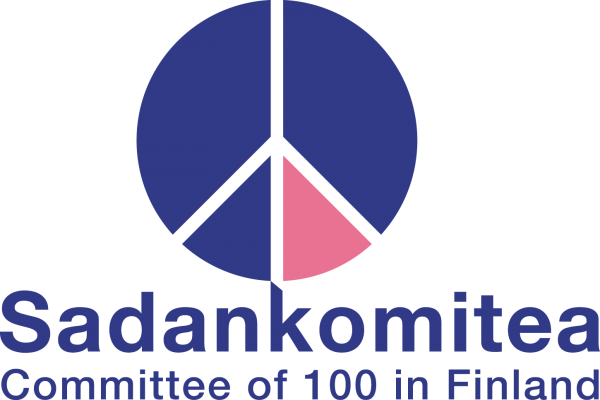EU 17th Annual Report on arms exports control: late, incomplete and inconsistent figures… the EU Council is not taking democratic control seriously
Brussels, Bremen, London, Barcelona, Helsinki, Bratislava, Prague, Oslo, Paris, Rome, Amsterdam, Stockholm,
04 May 2016
The European Network Against Arms Trade (ENAAT) strongly criticized “the Council of the European Union for not taking democratic control on arms exports seriously”. This follows the publication of the “Seventeenth Report on exports of military technology and equipment.”
“In spite of the requests of EU Parliament and civil society, again this year the Report has been published too late, it is incomplete and the data are inconsistent” – adds the note of ENAAT, a network of national and international organizations on arms trade control in Europe, also raising that this is partly due to the emerging negative impact on exports controls of the intra-EU arms trade liberalisation.
The latest figures, which cover 2014 and are now accessible in the user-friendly ENAAT browser, show that the first geopolitical zone of destination of EU countries military systems in 2014 has been the Middle East (over 31,5 billion Euros of licences in 2014), which means that EU countries are selling the largest quantity of weapons to the world area were there are major conflicts and authoritarian regimes.
EU countries have consistently licensed arms to human rights abusers and countries actively involved in wars, such as to Saudi Arabia (3.9 billions), Qatar (11.5 billions), Egypt (6.15 billions) or Israel (998 millions).
ENAAT is calling on the EU to implement a comprehensive response to conflicts by acting on their social, economic, environmental or political causes, rather than playing a double game of pyromaniac fireman led by a policy of short-term benefits. “It is time for peace and security interest to prevail over profits and national powers rivalries”, conclude ENAAT members.
EU reporting is getting worse year after year
The 17th EU Consolidated report on arms exports in 2014 was made officially public on May the 4th, 2016. “This late publication makes democratic control more or less a farce: arms export figures from January 2014 will be discussed 27 months after export permissions were actually granted or the weapons exported. If the European Union and its Member States take arms trade control seriously, this must improve”, said Martin Broek, Researcher for Stop Wapenhandel (Netherlands).
Some Member States do not report according to the required common standards, which makes it impossible to compare data and have a clear and consistent view of the EU arms exports.
Many major exporters do not provide figures about actual exports (deliveries), such as the UK and Germany, or have not disclosed figures on the specific categories of military systems they have sold, like France and Italy.
“Instead of getting better, the EU reporting on arms exports is getting worse, despite repeated calls and suggestions for improvement from civil society(1) and the European Parliament(2). This lack of transparency should no longer be tolerated” said Giorgio Beretta, Analyst at the Rete Italiana per il Disarmo (Italian Network for Disarmament).
The European Parliament has called in 2015 for standardised, complete and on time reporting to enable a proper public debate and control, and for penalties to be put in place in case of infringement. ENAAT recalls that the responsibility relies on EU Member States to provide the adequate legal frameworks and transparency of information necessary for political debate and legal control to happen, as arms export remains mainly a national competence.
EU member states are playing the pyromaniac firemen
Still worrying conclusions can be drawn both from the real exports and grants of licences in 2014, as the latter give us a look into government policies (which countries are acceptable, for what type of military products) and into the future of EU arms trade, the licences of today being the exports of tomorrow.
Saudi Arabia remains the most prominent EU arms destination for the last fifteen years, and among the big clients of European arms in 2014 one can also find Qatar, Algeria, Morocco, Egypt, India, the UAE and Turkey. Considering the poverty in some of these countries, or their involvement in conflicts or suspected ties with terrorist groups for others, it is astonishing that governments consider them legal destinations for a sound and responsible arms export policy.
Instead of contributing to the common security, EU arms sales are rather fuelling conflicts, such as that in Yemen(3), and repressive regimes, such as Saudi Arabia, Israel(4) and Egypt(5), which in turn increase migration flows and refugees pressure at EU borders, as well as EU financial aid for endless peace-building and reconstruction actions.
“With EU governments committed to promoting arms exports, controls will remain a pretty meaningless paper exercise, until legal actions by civil society are made possible and a policy shift happens” said Ann Feltham, Parliamentary Co-ordinator at UK Committee Against Arms trade (CAAT).
EU double standards on arms trade control
Despite claimed willingness to “prevent arms exports that might be used for inter nal repression, international aggression, or contribute to regional instability”(6), in practice the EU is lowering the standards of arms trade control under the cover of liberalising the internal market.
For example, France undertook a complete overhaul of its export control system in June 2014 in the framework of the 'Transfer Directive'(7) implementation. “This new regime exempts the State from being accountable for the control of exports, and increases the risk of abuses without any democratic control” said Tony Fortin, President of the Observatoire des Armements (France).
Similarly, in Flanders (Flemish region of Belgium) the use of general licenses makes it much more difficult to control who the end-user will be in the case of components; as a consequence about 50% of goods exports are not controlled any longer according to Vredesactie (Belgium).
END
Signed by:
- BUKO-Campaign stop the arms trade – Bremen, Germany
- Campaign Against Arms Trade – UK
- Centre Delàs d'Estudis per la Pau- Barcelona, Spain
- Committee of 100, Finland
- Human Rights Institute, Slovakia
- NESEHNUTÍ – Czech Republic
- Norwegian Peace Association, Norway
- Observatoire des armements – France
- Peace Union of Finland – Finland
- Rete Italiana per il Disarmo – Italy
- Stop Wapenhandel – Netherlands
- Swedish Peace and Arbitration Society, Sweden
- Vredesactie – Belgium
- International Peace Bureau (IPB)
- Quaker Council for European Affairs (QCEA)
For further information please contact:
Tuuli Vuori, Peace Union of Finland Communications officer – tiedotus(a)rauhanliitto.fi – +358 40 099 8275
Laetitia Sédou, ENAAT EU Programme officer – laetitia(a)enaat.org – +32 496 15 83 91
(1) See previous ENAAT press releases here
(2) European Parliament resolution of 17 December 2015 on arms export (2015/2114(INI))
(3) see http://www.enaat.org/news/PBSaudi.shtml and http://www.enaat.org/news/EUECSaudi.shtml
(4) see http://www.enaat.org/news/IsraelGaza.shtml
(5) http://zbrane.nesehnuti.cz/index.php/odpoved-ministerstva-zahranicnich-veci-na-nas-otevreny-dopis-k-egyptu/ ; http://www.disarmo.org/rete/a/42735.html
(6) EU Council Conclusions, 19.11.2012 (16373/12)
(7) Directive 2009/43/EC on intra-EU transfers of defence related products

